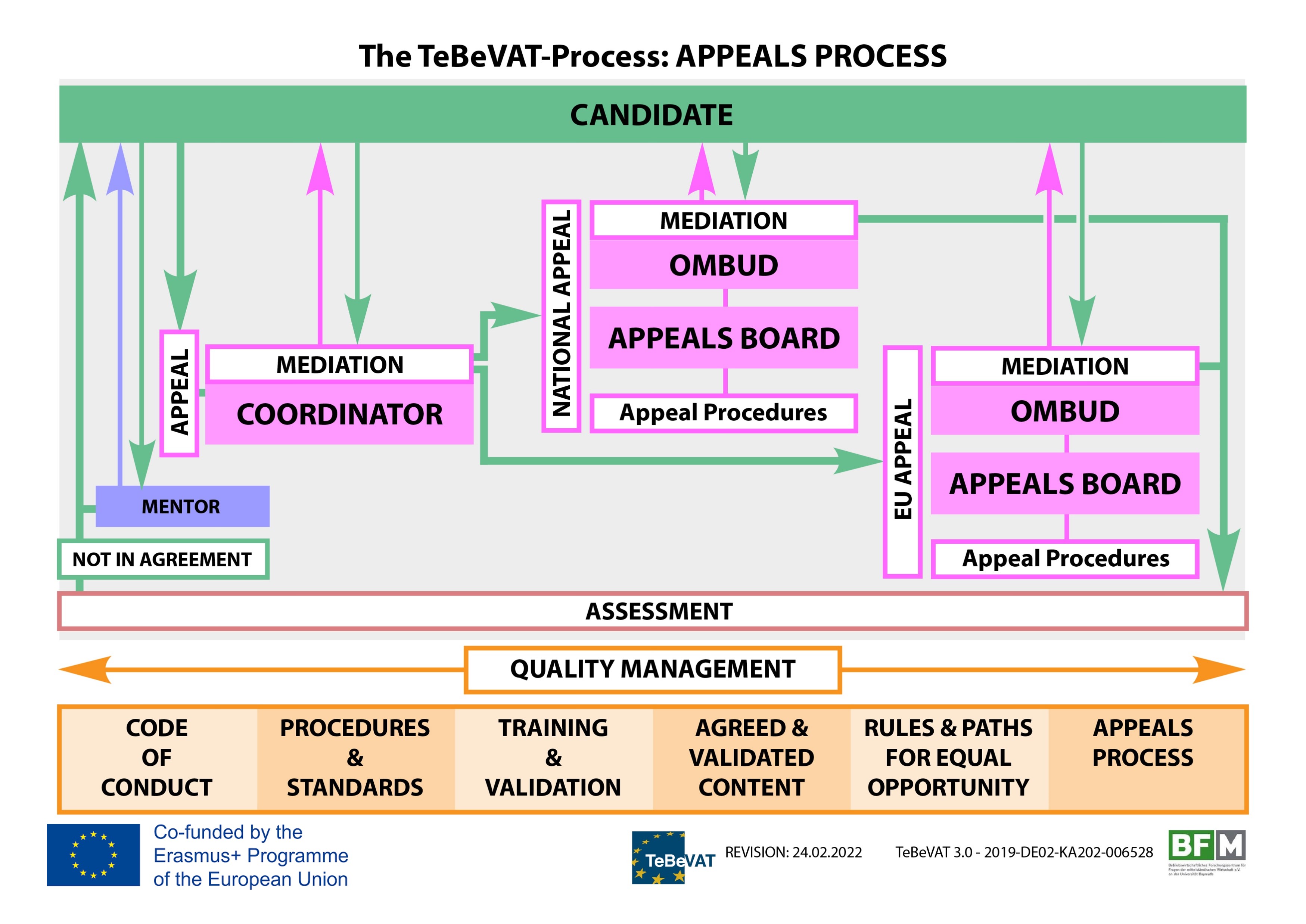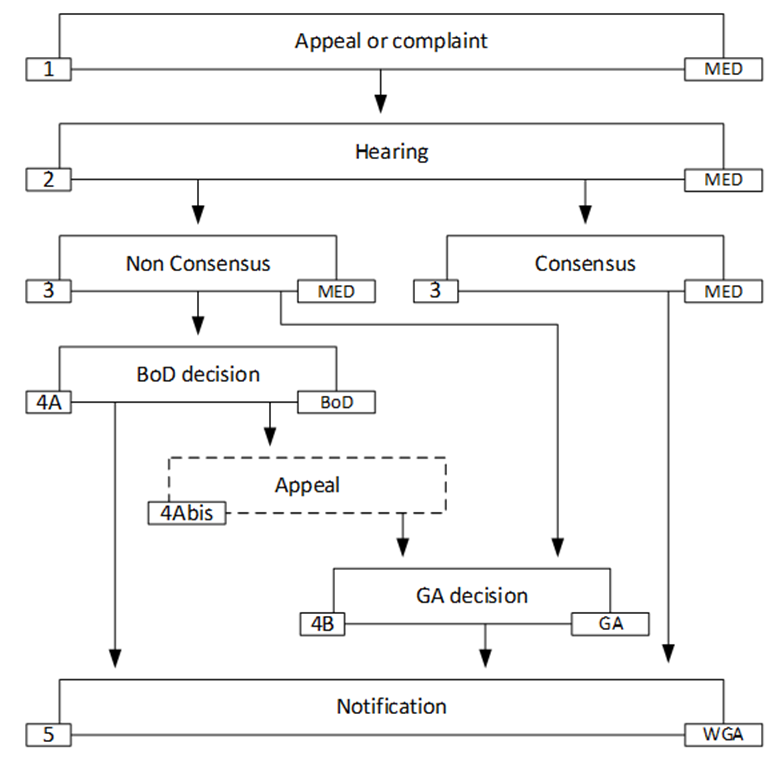5 Appeals Process
Appeals Process
Within the context of the TeBeVAT project, the appeals process serves to rectify errors appealing during the assessment process and is essential for overall assessment quality and the trust all stakeholders have in the process. Because assessment is the result of human work and a complex organisation involving many participants, the appeals process helps to reduce the potential human error, making the process more objective.
Difference between Complaints and appeals
Appeals refer to disagreement with a decision taken in an assessment procedure or a decision of the organisation concerning the acceptance of profiles, course material, existing certificates or accreditation.
Complaints refer to how an individual or organisation is treated by an assessor, an employee or the organisation itself. This includes the application of privacy, discrimination and professional behaviour rules, administrative issues and procedures, safety issues, etc.
Still, the appeals and complaints procedures are pretty similar.
International appeal and complaints procedure
Step 1: appeal and complaint
The appeal and complaints can be directed to the mediator. This is done in writing, accompanied by a motivation and all evidence available. The organisation and all its members will publish the contact details and the procedure on-line.
Step 2 hearing
The mediator hears all parties. This can be done face to face, in writing or by any electronic means.
The mediator can ask advise of the WGQ or WGRD about technical interpretations.
Step 3 consensus
The mediator tries to find a solution in consensus between the parties.
The mediator formalises the consensus or non-consensus in a consensus note, including all evidence and motivation given by the parties.
The mediator informs the BoD.
In case of involvement of the BoD, the mediator informs the GA.
Step 4a BoD decision
(The mediator decides if the BoD is involved, in which case the case is send to the GA.)
In case no consensus is found, the BoD decides.
The BoD hears all parties.
The decision is motivated formally.
Step 4b: GA decision
In case of appeal on a BoD decision or in case of involvement of the BoD, the GA decides.
The GA can delegate the hearing of all parties to a group of members.
The members report to the GA.
The decision of the GA is motivated formally.
Step 5: Notification
The decisions and consensus notes are recorded in the appeals and complaints register.

Figure 1: 
Figure 2: International appeals process